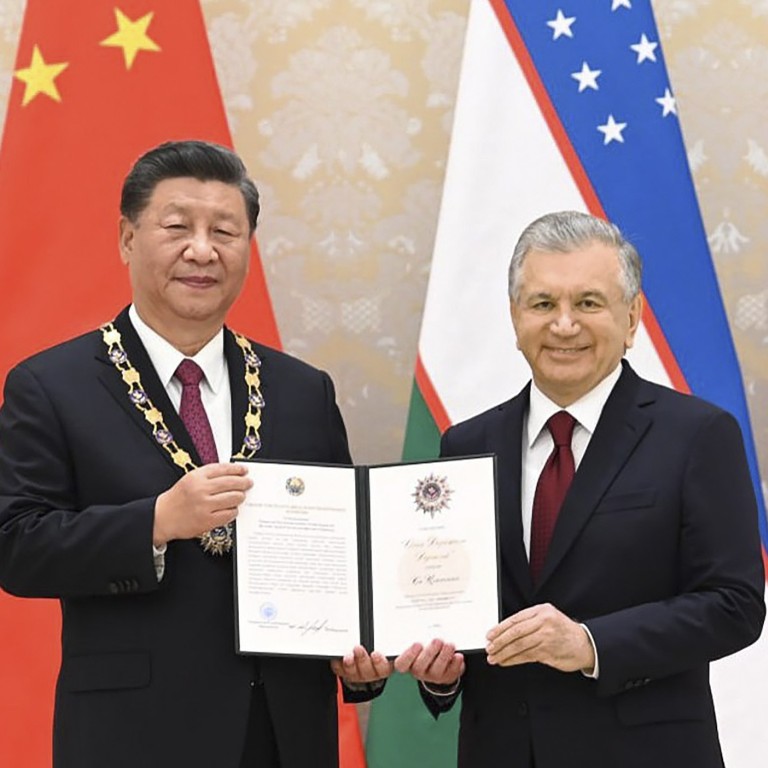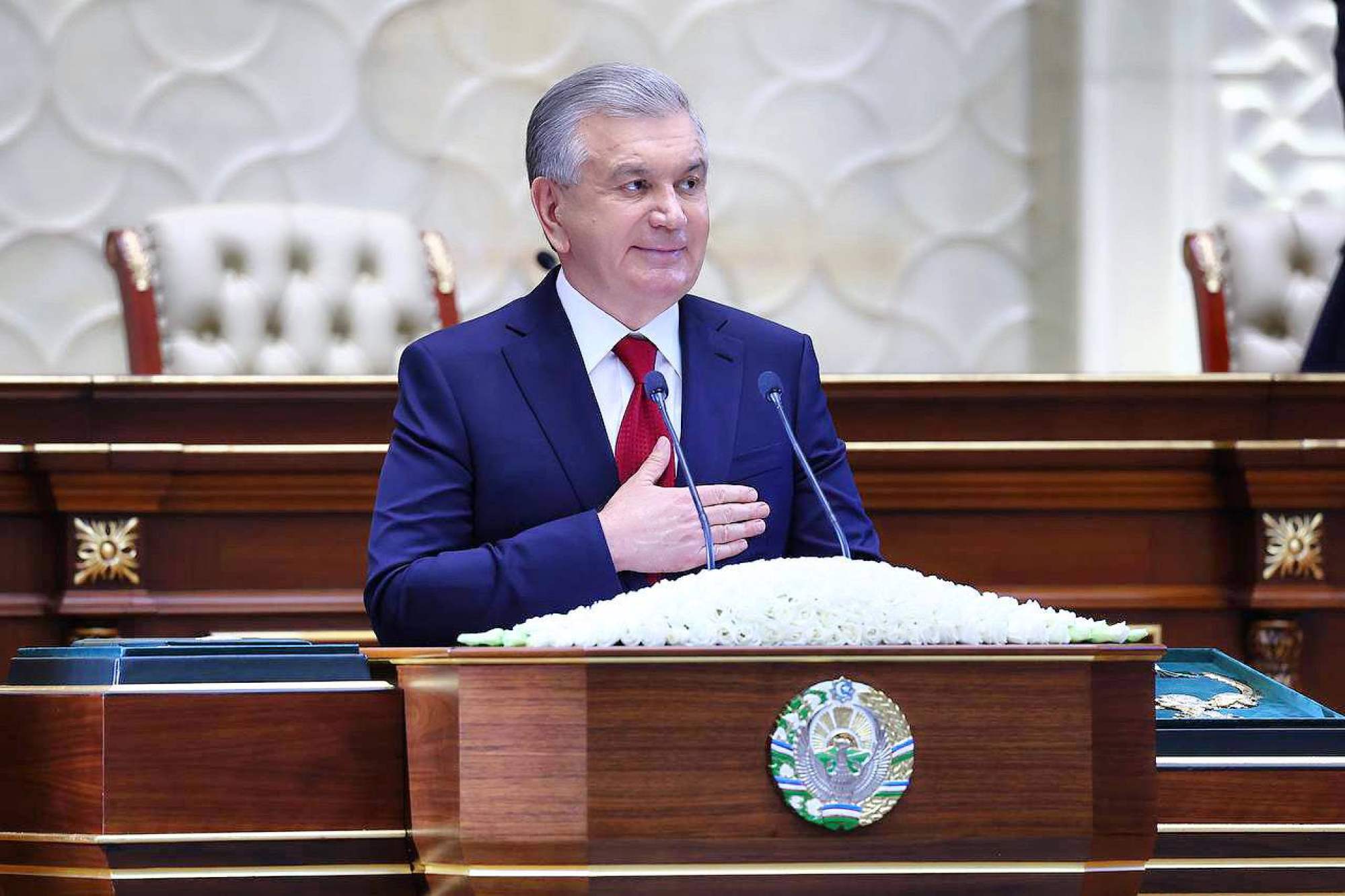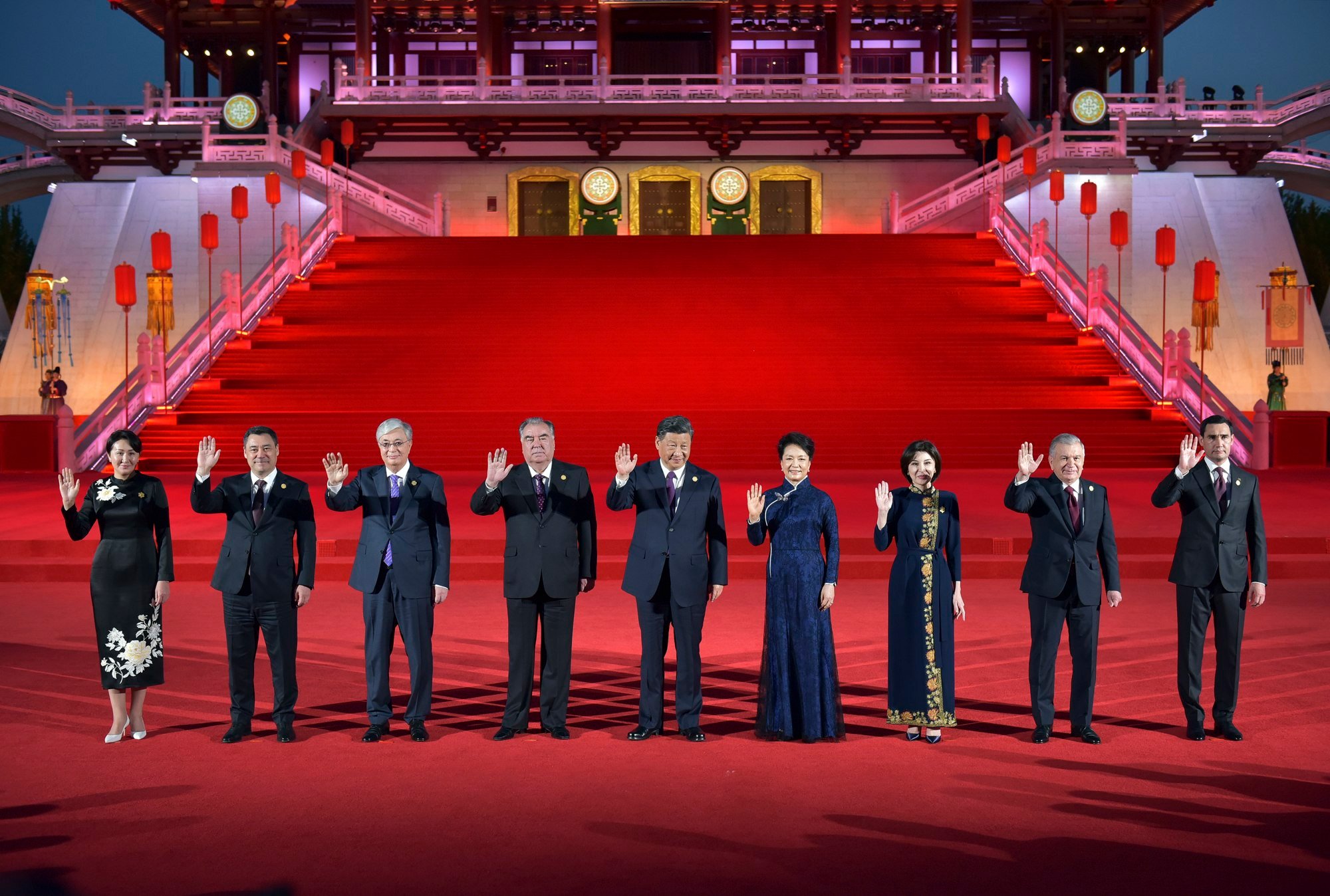Nan Yang
SENIOR MEMBER

- Joined
- May 1, 2010
- Messages
- 5,269
- Reaction score
- 1
- Country
- Location
Uzbekistan’s reform and economic ambitions being fuelled by Chinese investment
- President Shavkat Mirziyoyev’s re-election gave him a seven-year term and showed his programme of reform will continue for the foreseeable future
- This has brought Uzbekistan expanded economic cooperation with China,
 which is increasing its investment in Central Asia and is looking for stable partnerships
which is increasing its investment in Central Asia and is looking for stable partnerships

Mikhail Karpov
Published: 10:00pm, 9 Aug, 2023

Uzbekistan President Shavkat Mirziyoyev (right) poses with President Xi Jinping after awarding him the Order of Holy Friendship before the Shanghai Cooperation Organisation summit in Samarkand, Uzbekistan, in September 2022. Bilateral trade and Chinese investment in Uzbekistan have risen steadily in recent years as Uzbekistan purses a raft of reforms in its modernisation efforts. Photo: EPA-EFE
Uzbekistan President Shavkat Mirziyoyev’s Strategy for the Development of New Uzbekistan and China’s investment policy in Central Asia are working together to strengthen cooperation between the two countries in Central Asia.
Mirziyoyev won the presidential election in July, receiving more than 87 per cent of the vote.
The re-election effectively cements the ongoing partnership between the two countries. With a seven-year term ahead of him, Mirziyoyev will be able to roll out a new set of reforms and continue implementing his liberalisation goals, signalling that investment from China will keep coming into the country.
At the end of July, Uzbekistan’s Minister of Investment, Industry and Trade Laziz Kudratov met Yu Jun, China’s ambassador to the country. During their meeting, they discussed the implementation of the agreements reached at the China-Central Asia summit, further opportunities for bilateral trade and economic and financial cooperation, among other topics. There are multiple joint projects planned between the two countries, ranging from energy to transport and agriculture.
As Central Asia’s most populous country, Uzbekistan has the foundation to become a regional economic powerhouse.
Mirziyoyev has implemented sweeping political, economic and social reforms in the country since taking office in 2016. The ban on child labour and forced labour in the cotton industry has improved Uzbekistan’s reputation abroad and put an end to one of the country’s most notorious practices.

President Shavkat Mirziyoyev attends an inauguration ceremony in Tashkent, Uzbekistan, on July 14 after being elected to a third term as the country’s leader. Photo: Handout
He has also made the fight against corruption a priority, making living and doing business in Uzbekistan safer. Most notably, he is working to eliminate barriers for trade and liberalised the foreign exchange market. He is trying to turn Uzbekistan into an attractive country for business and foreign investment.
Mirziyoyev’s level of popular support and his pending seven-year term are an indicator to foreign investors, including China, about the stability of the government. Chinese investment in the Uzbek economy has risen to about US$11 billion,
Direct investment from China and Uzbekistan’s other leading partners is present in almost all sectors of the country’s economy. These sectors include oil and gas, chemicals, construction, pharmaceuticals, agriculture and others. Chinese investment in these areas are poised to boost technological modernisation and increase the structural diversification of the Uzbek economy, enhancing its export potential.
https://www.scmp.com/news/china/dip...al-asia-train?module=hard_link&pgtype=article
Trade between Uzbekistan and China has doubled in recent years, reaching nearly US$9 billion last year and elevating China to being Uzbekistan’s top trade partner. Uzbekistan’s exports to China have increased at an annualised rate of 14 per cent during the last 26 years.Uzbekistan’s exports to China are mostly mineral resources, non-ferrous metals, cotton and agricultural products. However, they now also include electronic equipment and machinery such as industrial and lab electric furnaces, along with harvesting and threshing machinery. The expanding list of finished products destined for export shows that Uzbekistan’s recent economic reforms are being implemented efficiently.
Bilateral relations between China and Uzbekistan are driven not only by friendly ties and history, which prescribes Uzbekistan’s historic role as a crossroads on the Silk Road.

President Xi Jinping (centre) and his wife Peng Liyuan pose for a photo with Central Asian leaders and their wives during the welcome ceremony at the China-Central Asia Summit in Xian, Shaanxi province, on May 18. Photo: EPA-EFE via Kyrgyzstan President Press Service handout
During the summit, the countries agreed on a five-year cooperation plan which includes building factories in Uzbekistan for the Chinese car manufacturers BYD and Exeed, assisting with the construction of power plants, expanding infrastructure and upgrading the railway fleet. The total value of the signed agreements is estimated to exceed US$25 billion.
Where there is demand for growth and infrastructure, China opts to step in. In turn, Uzbekistan aims to double its GDP to US$160 billion by 2030, increase its citizens’ purchasing power, and double exports of finished products during the next three years by becoming a member of the World Trade Organization.
Uzbekistan is also focused on increasing green energy production as part of its economic modernisation plan. It is reducing dependence on fossil fuels and has announced collaboration with Chinese companies to build a total of 4 gigawatts of solar power capacity for US$4 billion in direct investment.
Chinese capital is stepping in to help Uzbekistan reach its goals and is benefiting in the process. This mutually beneficial exchange is what the China-Central Asia summit was meant to achieve. It seems to be compatible with Mirziyoyev’s new strategy for Uzbekistan, which among other things aims to get the country on par with middle-income countries and transform it into a strong regional economy.
Chinese investment in Uzbekistan is growing at a steady pace. It has the potential to rise even further as long as Uzbekistan implements the president’s planned reforms and continues to create an environment that is appealing to business and foreign investment.
Mikhail Karpov is a PhD candidate of historical sciences at Moscow State University, Institute of Asian and African Studies
